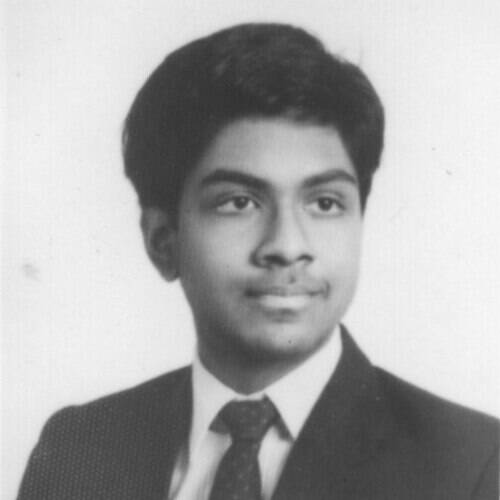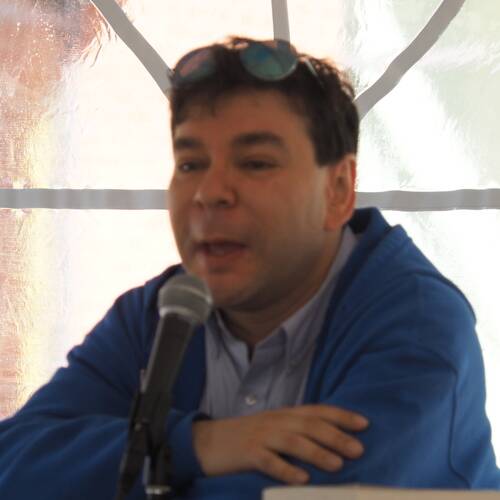Physical Address
Enrolled in the Icahn School of Medicine at Mount Sinai Graduated with Doctor of Philosophy Occupations biologist university teacher microbiologist virologist immunologist
Icahn School of Medicine at Mount Sinai: Statistics
Icahn School of Medicine at Mount Sinai Acceptance rate and admissions statistics
We’ve calculated the 12% acceptance rate for Icahn School of Medicine at Mount Sinai based on the ratio of admissions to applications and other circumstantial enrollment data. Treat this information as a rough guide and not as a definitive measure of your chances of admission. Different programs may have significantly varying admissions rates.
15 students enrolled in some distance education courses.
Enrollment demographics by race or ethnicity
| White | 466 (37%) |
|---|---|
| Asian | 272 (22%) |
| Nonresident Alien | 147 (12%) |
| Hispanic | 141 (11%) |
| Black or African American | 118 (9%) |
| Race or Ethnicity unknown | 71 (6%) |
| Two or more races | 30 (2%) |
| Native Hawaiian or other Pacific Islander | 1 (0.1%) |
| American Indian or Alaska Native | 1 (0.1%) |
Costs per year: Tuition, Housing, Fees
Tuition and fees
| Graduates | |
|---|---|
| Tuition in-district | $29,866 |
| Tuition in-state | $29,866 |
| Tuition out-of-state | $29,866 |
| Fee in-district | $190 |
| Fee in-state | $190 |
| Fee out-of-state | $190 |
Room and board costs
Icahn School of Medicine at Mount Sinai majors
Icahn School of Medicine at Mount Sinai has granted 130 master’s across 7 programs and 186 doctorate degrees across 3 programs. Below is a table with majors that lead to degrees at Icahn School of Medicine at Mount Sinai.
| Major | Master | Doctoral |
|---|---|---|
| Medicine | 146 | |
| Biomedical Sciences, General | 25 | 38 |
| Epidemiology | 51 | |
| Medical Science & Scientist | 25 | 2 |
| Genetic Counseling & Counselor | 11 | |
| Health & Health Care Administration & Management | 10 | |
| Bioinformatics | 4 | |
| Biostatistics | 4 | |
| Grand Total | 130 | 186 |
Publications & Citations
Icahn School of Medicine at Mount Sinai is a world-class research university with 94,464 scientific papers published and 3,520,489 citations received. The research profile covers a range of fields, including Medicine, Biology, Genetics, Chemistry, Pathology, Biochemistry, Psychology, Computer Science, Surgery, and Psychiatry.
Publication / Citation count by topic
Annual publication & citation counts
| Year | Publications | Citations |
|---|---|---|
| 1990 | 541 | 8011 |
| 1991 | 587 | 8580 |
| 1992 | 588 | 10863 |
| 1993 | 598 | 9523 |
| 1994 | 560 | 10573 |
| 1995 | 611 | 11281 |
| 1996 | 702 | 12241 |
| 1997 | 731 | 14371 |
| 1998 | 786 | 16708 |
| 1999 | 909 | 19277 |
| 2000 | 1033 | 22948 |
| 2001 | 1080 | 26210 |
| 2002 | 1267 | 31246 |
| 2003 | 1302 | 35421 |
| 2004 | 1393 | 40242 |
| 2005 | 1389 | 46647 |
| 2006 | 1723 | 54440 |
| 2007 | 1788 | 61620 |
| 2008 | 2083 | 69105 |
| 2009 | 2291 | 78404 |
| 2010 | 2565 | 88256 |
| 2011 | 2575 | 101782 |
| 2012 | 2913 | 116316 |
| 2013 | 3237 | 127509 |
| 2014 | 3916 | 142657 |
| 2015 | 4051 | 158919 |
| 2016 | 4758 | 172218 |
| 2017 | 5307 | 198133 |
| 2018 | 5208 | 203337 |
| 2019 | 6165 | 240569 |
| 2020 | 7349 | 305939 |
| 2021 | 8604 | 416943 |
| 2022 | 7069 | 408023 |
Icahn School of Medicine at Mount Sinai alumni

Occupations international forum participant politician physician
Biography Scott Gottlieb is an American physician and investor who served as the 23rd commissioner of the Food and Drug Administration (FDA) from May 2017 until April 2019. He is presently a senior fellow at the conservative think tank the American Enterprise Institute (AEI), a partner at the venture capital firm New Enterprise Associates (NEA), a member of the board of directors of drug maker Pfizer, Inc, a member of the board of directors of Illumina, Inc., a contributor to the cable financial news network CNBC, and a frequent guest on the CBS News program Face the Nation. An elected member of the National Academy of Medicine, Gottlieb is the author of The New York Times best selling book Uncontrolled Spread on the COVID-19 pandemic and the national security vulnerabilities that it revealed. . + show more

Biography Balamurali Krishna “Bala” Ambati is an Indian-American ophthalmologist, educator, and researcher. On May 19, 1995, he entered the Guinness Book of World Records as the world’s youngest doctor, at the age of 17 years, 294 days. . + show more

Occupations medical writer writer novelist physician poet
Biography Jacob M. Appel is an American author, poet, bioethicist, physician, lawyer and social critic. He is best known for his short stories, his work as a playwright, and his writing in the fields of reproductive ethics, organ donation, neuroethics, and euthanasia. Appel’s novel The Man Who Wouldn’t Stand Up won the Dundee International Book Prize in 2012. He is the director of Ethics Education in Psychiatry and an associate professor of psychiatry and medical education at the Mount Sinai School of Medicine, and he practices emergency psychiatry at the adjoining Mount Sinai Health System. Appel is the subject of the 2019 documentary film Jacob by director Jon Stahl. . + show more

Enrolled in the Icahn School of Medicine at Mount Sinai Graduated with Doctor of Philosophy Occupations biologist university teacher microbiologist virologist immunologist
Biography Vincent R. Racaniello is a Higgins Professor in the Department of Microbiology and Immunology at Columbia University’s College of Physicians and Surgeons. He is a co-author of a textbook on virology, Principles of Virology. . + show more
How to Get Into the Icahn School of Medicine: Requirements and Strategies
Discover the Icahn School of Medicine ranking and admissions strategies, plus secondary essay examples

Part 1: Introduction
Part 2: Icahn Medical School MD programs
Part 3: How hard is it to get into the Icahn School of Medicine at Mount Sinai?
Part 4: Icahn School of Medicine secondary application essays (examples included)
Part 5: Icahn School of Medicine interview
Part 1: Introduction
If you’re looking for a medical school focused on pushing the boundaries of medical innovation, the Icahn School of Medicine should be near the top of your list. Offering one of the best medical programs in New York, Icahn Medical School has a strong reputation for being a leader in medical training, research, and patient care.
The Icahn School of Medicine, currently sitting at #18 in the U.S. News and World Report Research rankings, is located on the culturally vibrant island of Manhattan in New York City. Opened in 1968, it serves as the medical school for the Mount Sinai Health System, which boasts eight hospital campuses and is ranked #16 for Best Hospitals by U.S. News and World Report. With its core values of research, service, and global health, the Icahn School of Medicine attracts forward-thinking students who hope to change the frontiers of local and global healthcare.
If you’re eager to join a learning environment that will challenge you to think critically and disrupt the status quo, Icahn Medical School would be the perfect choice for you. But you’ll need more than impressive stats to get accepted into this competitive medical program. You’ll also need to demonstrate that your combined passions, experiences, and qualities make you the perfect match for Icahn Medical School.
In this guide, we’ll discuss how to get into the Icahn School of Medicine, from being the ideal candidate to writing powerful secondary essays and acing the Icahn Medical School interview.
Part 2: Icahn Medical School MD programs
There are several paths for students to earn an MD from the Icahn School of Medicine:
- The traditional, four-year MD program
- The MD/PhD program
- The MD/MPH program
- The MD/MSCR PORTAL program
While only applicable to college freshmen or sophomores, it’s worth noting that the Icahn School of Medicine also offers an innovative approach to med school admissions through the FlexMed Program. This progressive admissions pathway invites sophomores from any college and any major to apply for early acceptance to Icahn Medical School.
If accepted, FlexMed students aren’t required to complete traditional med school science prerequisites or take the MCAT, freeing them up to pursue interests outside of the usual premed course of study. This is just one example of the Icahn School of Medicine questioning conventions and thinking outside the box in order to advance the field of medicine.
Icahn School of Medicine tuition and scholarships
The 2023–2024 tuition for Icahn Medical School is $66,446. When fees, room, board, supplies, and personal expenses are added, the total cost of attendance reaches $88,491.
The Icahn School of Medicine has historically offered need-based institutional scholarships and loans to its students. But in 2019, Icahn Medical School once again demonstrated progressive and innovative thinking by rolling out the Enhanced Scholarship Initiative. This program addresses the high levels of debt incurred by medical school graduates.
Students with demonstrated need are guaranteed to take out no more than $75,000 in loans over their four years of study—much less than the average medical school debt of $250,990. After the loan is applied, Icahn Medical School covers its students’ remaining demonstrated need through scholarships, making it an affordable and attractive option for many.
Part 3: How hard is it to get into the Icahn School of Medicine at Mount Sinai?
Icahn School of Medicine admissions statistics
Icahn School of Medicine’s acceptance rate is just 3.4 percent. Let’s examine the admissions statistics for the class of 2025:
- Applications: 8,276
- Interviews: 823
- Matriculants: 120
- Average GPA: 3.81
- Average MCAT score: 519
It’s important to note that the figures above include MD/PhD applicants and students entering via FlexMed, in addition to applicants to the four-year MD program. Because FlexMed’s class size tends to hover around 50, and Icahn aims to matriculate 12 MD/PhD students per year, we can infer that traditional MD applicants are competing for approximately 60–70 spots.
Icahn School of Medicine admissions requirements
To apply to the Icahn School of Medicine, you’ll need to have completed coursework in a number of key areas. Here are Icahn’s requirements for incoming MD students:
- General chemistry: One year
- Organic chemistry: One year or one semester each of organic chemistry and biochemistry
- Biology: One year
- Physics: One semester with lab
- Lab work: One year in biology and/or chemistry
- Statistics: One semester (biostatistics preferred)
- Intensive writing courses: One year
Note that, even if you received AP credit in the sciences listed above, you’ll still need to take advanced coursework in those areas to complete Icahn’s prerequisites.
Additionally, applicants are encouraged to take coursework in the social sciences, such as political science, global health, sociology, and psychology. They are also encouraged to gain skills, if not proficiency, in a second, non-English language. And indeed, 79 percent of students who matriculate possess native or advanced proficiency in a language other than English. This aligns with the emphasis Icahn places on global health. Plus, knowing multiple languages serves as an advantage to students who are completing their clinicals in a place as diverse as New York City.
Applicants must have taken the MCAT within three years of the semester they matriculate at Icahn Medical School.
The Icahn School of Medicine also looks for students with a significant history of serving their communities, as service is one of Icahn’s core values. Nowhere is this more evident than in the East Harlem Health Outreach Partnership (EHHOP), Icahn Medical School’s student-run free clinic which offers primary care services to uninsured adults at no cost. If practicing medicine in an underserved community is your career goal, serving at EHHOP is one of the most valuable med school experiences you can find.
Your application should demonstrate that you exceed the Icahn School of Medicine requirements and possess the qualities to make you an ideal candidate for Icahn’s unique program. The secondary essays present the greatest opportunity for you to achieve this objective.
Icahn School of Medicine application timeline
To apply to Icahn School of Medicine, plan to submit your AMCAS application according to the following timeline:
- May 2, 2023: AMCAS application opens
- May 30, 2023: AMCAS application can be submitted
- July 2023–November 2023: Icahn secondary application invitations sent out
- July 2023–February 2024: Applications reviewed
- August 2023: Interview invitations begin to be sent out
- September 2023–February 2024: Invitations conducted
- October 1, 2023: AMCAS application deadline
- November 1, 2023: Icahn secondary application deadline
- January 2024–August 2024: Admissions decisions released
To increase your admissions odds, plan to submit your application and secondary materials as early as possible. Because Icahn Medical School follows rolling admissions, it’s in your best interest to be included in the early rounds of application review.
Part 4: Icahn School of Medicine secondary application essays (examples included)
After submitting the AMCAS application, you can work on your secondary essays to the Icahn School of Medicine. Many applicants will have similar stats and extracurriculars as you do, so these essays are your best chance to impress the admissions committee and improve your odds of being accepted.
Below, you’ll find strategies for approaching each prompt, as well as examples to guide you in writing essays that make you stand out as a top applicant.
Question 1: If you are currently not a full-time student, please briefly describe the activities you are participating in this academic year. (100 words)
If you’re entering your final undergraduate year and are applying to start at the Icahn School of Medicine immediately after graduation, skip this question.
But if you’re entering a gap year as you submit your application, or if you’ve been out of school for some time already, this is your opportunity to explain why you didn’t apply to medical school directly out of undergrad. Don’t worry, you’re not at a disadvantage. After all, the average age of first-year med school students is 24, so most applicants are in the same situation as you. But it’s important that your activities during your gap year demonstrate your passion for medicine and set you up as a competitive applicant.
You might take a gap year to strengthen a weak area of your application, such as low research or patient exposure hours. If this is the case, you want to write your essay in a way that focuses on your strengths rather than your weaknesses. Don’t dwell on the fact that you weren’t a competitive applicant straight out of undergrad. Instead, show how you’re becoming the ideal candidate for Icahn Medical School.
Even though you only have 100 words and the prompt is to “describe your activities,” you don’t want this essay to become a resume summary. And you definitely don’t want it to bore the admissions committee. You can prevent this by reflecting on how each activity impacts you.
When you start writing this gap year essay, keep several questions in mind. What were your goals for taking a gap year? Why were these goals important to you? How have you been successful in meeting your goals?
Here’s an example of an essay written by an applicant taking a gap year to gain additional patient exposure experience.
My goal for taking a gap year was to gain new medical skills and work with patients from an underserved community.
After graduating, I completed training and secured a position as a phlebotomist in a community health clinic. I work three days a week and see thirty to forty patients each day. Calming the patients who are anxious around needles has significantly strengthened my bedside manner.
I also volunteer as an intake assistant helping patients qualify for free medical services. Talking with people undergoing hardship has heightened my desire to serve and advocate for the struggling members of my community.
This essay works because it demonstrates how the applicant’s activities are shaping their medical goals and making them a stronger candidate for the Icahn School of Medicine.
But not everyone taking a gap year is doing so to address a weak area of their profile. Maybe your application is strong already, and you want a year to pursue one of your passions before starting your medical career. In that case, you still want to clarify what the specific goal for your gap year is and show how your experience will make you a better physician.
Question 2: If you are committed to a particular community or if there is an important aspect of your identity not addressed elsewhere in the application, we invite you to do so here. Briefly also explain how such factors may have influenced your motivation for a career in medicine. Completing this section is optional. (150 words)
Question 3: What is the toughest feedback you ever received? How did you handle it and what did you learn from it? (250 words)
Question 4: Describe a situation that you have thought to be unfair or unjust, whether towards yourself or towards others. How did you address the situation, if at all? (200 words)









